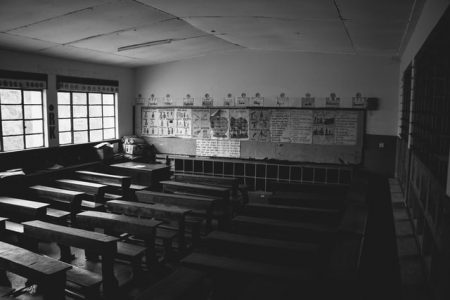Last Updated on October 12, 2025 by Michelle Ball
No parent likes to think about student expulsions or continuation school. However, after expulsion, where can a student attend school? Why is a continuation school the only school in the expulsion order?

Students Still Have Right To Attend School After Expulsion
A student who is expelled under one of the Big 5 offenses, or any of the other bases for expulsion, is still entitled to an education. The expulsion order legally must provide the student with a new school they can attend, even if they were expelled.
Unfortunately, however, the student may have very limited options provided in an expulsion order.
Per California Education Code 48915, a student who is expelled under sections (b),(c) or (e) shall be referred to a program of study which meets the following conditions:
(1) Is appropriately prepared to accommodate pupils who exhibit discipline problems.
(2) Is not provided at a comprehensive middle, junior, or senior high school, or at any elementary school.
(3) Is not housed at the schoolsite attended by the pupil at the time of suspension.
This certainly narrows their options.
Continuation School Placement
This law usually means a student assignment to a continuation school or county community school in the Board expulsion order. These are not schools most parents usually want a student to attend, but these schools do work for some students, in the right circumstances.
Ironically, the reason continuation schools may be perceived as unsavory is the fact that expelled (aka “bad”) students attend these schools. Most parents do not envision their children as one of “those bad students,” even after they are expelled.

Attendance at Designated School Not Usually Mandatory to Meet Expulsion Order Terms
Usually, the student’s placement at the assigned continuation or community school is not a mandatory requirement to meet the expulsion order. However, parents should consult with the expelling District first to be sure.
If continuation school is not mandatory to meet the terms of the expulsion, a parent may attempt to enroll the student in another school district, a charter school, a private school, or an online school. However, there are no guarantees the student can get in somewhere else.
Expulsion Must Be Revealed When Trying to Enroll
When applying to a private, charter or other school, that is not the assigned continuation or community school, a parent must reveal that there is a student expulsion in place. Parents can try to persuade the “better” school to admit the student even while the student is on expulsion. A letter explaining the situation, how it was flawed, etc. may be helpful.
Placement Exceptions May Be Made, But Try BEFORE the Hearing

It is not impossible to obtain a student placement other than the continuation or community school after expulsion.
However, the best time to try to resolve these issues is before the expulsion ever takes place.
Depending on the expellable offense, and the student’s discipline history, a placement at a better school may be negotiated pre-expulsion hearing. A stipulated agreement, or suspended expulsion may be agreed, which allows placement at a site other than a continuation or community school.
Michelle Ball is an experienced student lawyer and advocate who helps with expulsions and student discipline. As an education attorney in Sacramento, she becomes involved across California, in Roseville, Auburn, Los Angeles, San Francisco, Redding, and throughout California wherever students need her
[originally published July 5, 2011]

